Power Up Your Child’s Vocabulary: A Mom-Tested Approach
Submitted by KiasuEditor
 Were you told, as you were growing up, to read the dictionary every day and learn a new word from it?
Were you told, as you were growing up, to read the dictionary every day and learn a new word from it?
Given the tedium of the task, it’s well-meaning advice that would have likely gone unheeded. But, we are in the age where technology and creativity are redefining almost everything that we know, including the trusty old dictionary.
As a mother and a freelance writer, my dictionary of choice has been Vocabulary.com since I discovered it last year. I have never experienced this with a dictionary before—its definitions are a pleasure to read. It’s like having a friend explain a word to you, in conversational language and with evocative examples that you won’t quickly forget.
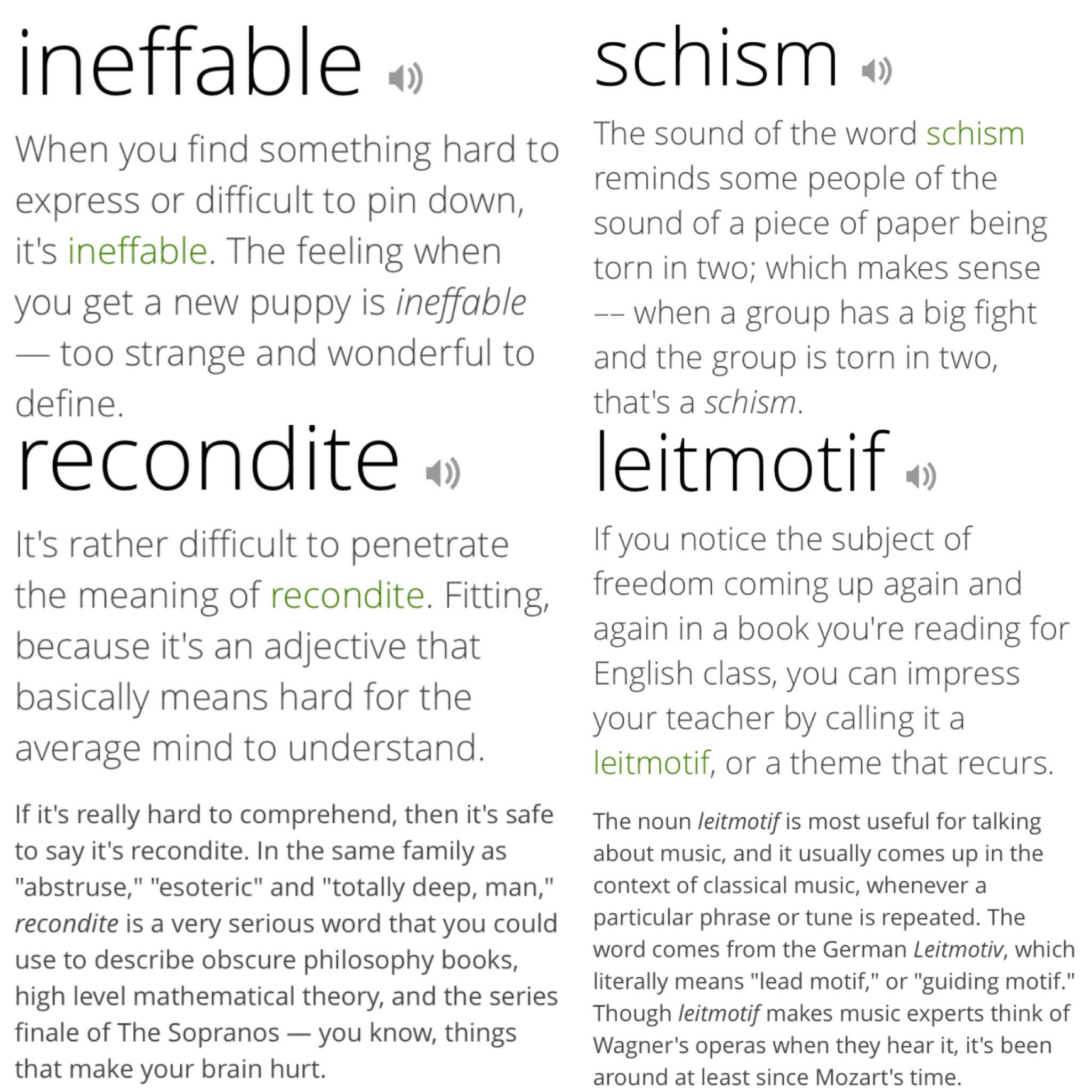
Once you’re aware of a word’s meaning, the next step is to find out how it’s used in real life. Vocabulary.com helps you to achieve this with its “Usage Examples” sidebar, which extracts relevant example sentences from credible news outlets such as the New York Times. The examples are ordered by date (latest first), and you can use the dates to assess how frequently a word is used, which may inform your decision on whether to include a word in writing or speech.
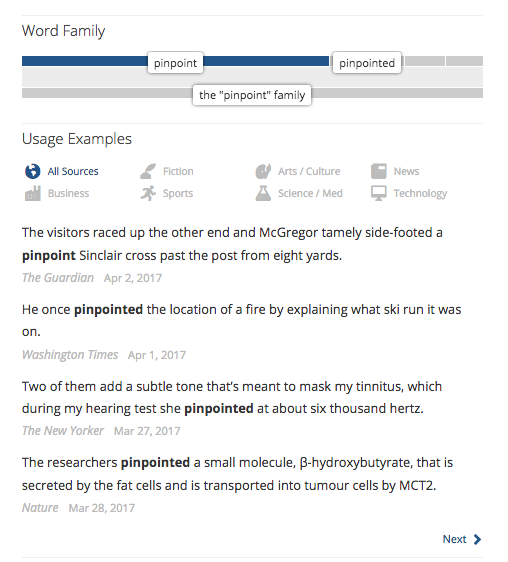
The site has also launched a complementary mobile app, and I consider this to be my best investment of last year, at just S$4.48. It’s the one app that I’ve recommended to friends, to other parents, as well as to my 11-year-old daughter, with a variation on the classic dictionary tip—to spend at least 10 minutes a day on the word challenges. I’ve racked up over 800,000 points on the app in a little over six months, so I can vouch for its addictiveness.
To see why this app trumps conventional tools for learning vocabulary, such as flashcards, here’s a look at the different ways in which the word challenge questions are framed:
There are straightforward questions that quiz you on a word’s meaning.
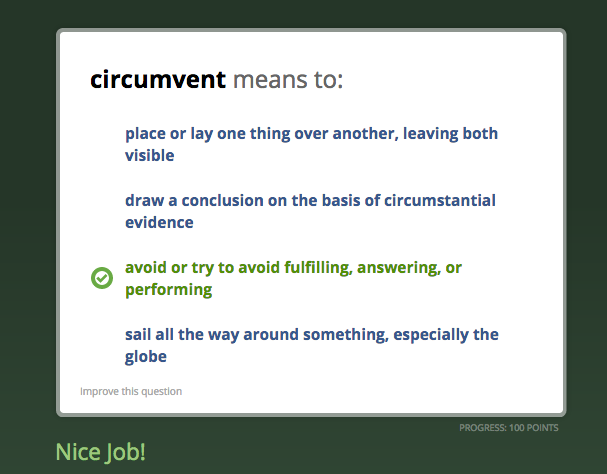
Often, you’ll be given an extract from the news or a literary text, and asked to fill in a blank.
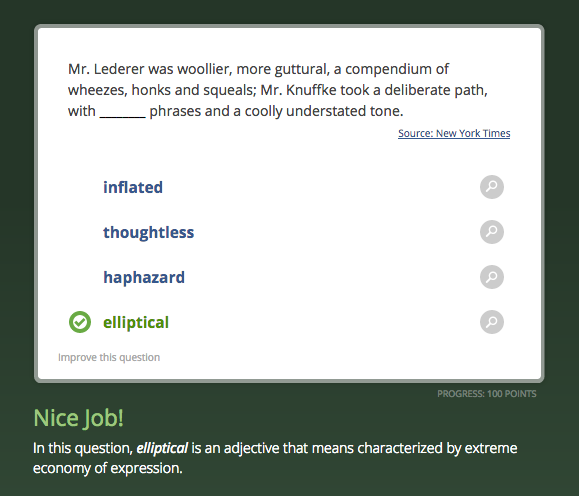
You’ll also be asked to supply antonyms.
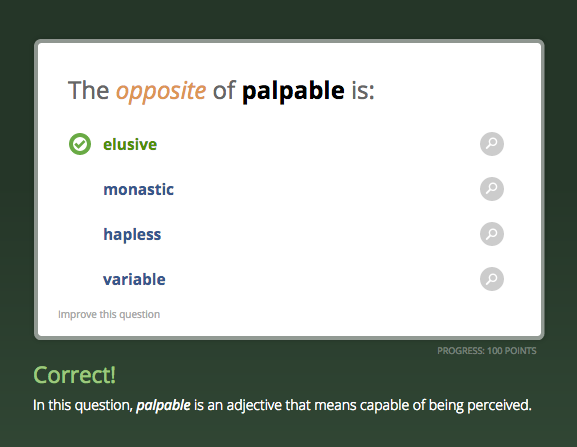
Scenario questions will test your true understanding of a word.
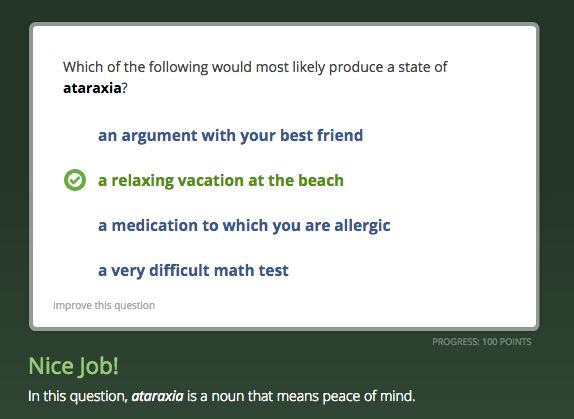
Occasionally, you will be asked to choose the most appropriate picture to match a word.

To keep you motivated, there are medals to amass—for answering a series of 5, 10, 15, and even 50 questions correctly—and levels to ascend.
The clincher is the app’s timed delivery of questions. Its makers have built in a function to determine if you’ve familiarised yourself with a new word—when that happens, they give you a break from practising the word, and serve it up again at the point that you may have forgotten it.
To ensure that the app fuels your vocabulary growth, make a habit of adding words that you’re learning to your playlist, instead of only playing along to the words that are suggested for you. (Purchase the app once, and you can open separate accounts for different family members.) Soon enough, it should be able to customise the game to suit your ability level.
I love Vocabulary.com and would go as far as to call it life changing—it’s clarified my understanding on higher-level words, brought long-forgotten words back into my consciousness, and given me the confidence to experiment with words that I wouldn’t ordinarily use. I’ve been known to spend 25 minutes or longer on the app, but it appears my addiction is mild. “We have some people who play, it seems like, over 10 hours a day,” says Mark Tinkler, Vocabulary.com’s co-founder. “It’s crazy.”